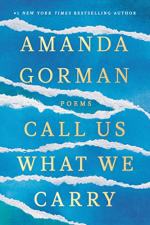
|
| Name: _________________________ | Period: ___________________ |
This test consists of 15 multiple choice questions and 5 short answer questions.
Multiple Choice Questions
1. In "The Shallows," how does Gorman describe us?
(a) Suspicious.
(b) Happy.
(c) Sad.
(d) Touch-deficient and light-starved.
2. In "There's No Power Like Home," what did the mask around our ear do?
(a) Hung itself into the year.
(b) Got lost.
(c) Got dirty.
(d) Got bigger.
3. In "Captive," what floods the streets?
(a) Water.
(b) Animals.
(c) Trees.
(d) Friends.
4. In "Aborescent I" what does Gorman say is at the very root of ourselves?
(a) What goes unseen.
(b) What is right.
(c) What is wrong.
(d) What goes unsaid.
5. In "Cordage, or Atonement," what did we have to be to be part of the living?
(a) Be wary of it.
(b) Be apart from it.
(c) Be loving of it.
(d) Be mindful of it.
6. In "& So," what it is easy to do?
(a) Harp.
(b) Heal.
(c) Flee.
(d) Find.
7. In "School's Out," what is not needed for graduation day?
(a) A fairy.
(b) A sandwich.
(c) A gown.
(d) A shoe.
8. In "Back to the Past," what is the closest we get to time travel?
(a) Our friends returning.
(b) Photos.
(c) Our lovers dying.
(d) Our fears softening.
9. In "At First," what did we not expect when we asked how others were faring?
(a) An honest or full response.
(b) A song.
(c) A farm.
(d) A job.
10. In "Hephaestus," what is "that clear plunge"?
(a) A friend.
(b) A balm.
(c) The beginning of what we ought to become.
(d) A relief.
11. In "Memorial," what do we do when we tell a story?
(a) Honoring a relative.
(b) Hearing ourselves.
(c) Living memory.
(d) Finding community.
12. What is the name of the first major section in Part I?
(a) Dream.
(b) Requiem.
(c) Wrong.
(d) Right.
13. In "Cut," what is there no simple way to do?
(a) Eat.
(b) Heal.
(c) Hurt.
(d) Grieve.
14. What does the last line of "Call Us" implore the reader to do?
(a) Call us what we need.
(b) Call us what we sing.
(c) Call us what we know.
(d) Call us what we carry.
15. In "Pre-Memory," what is trauma like?
(a) A season.
(b) An enemy.
(c) A reason.
(d) A friend.
Short Answer Questions
1. In "When," who do we wrap our arms around?
2. In "Essex I," what was the Essex?
3. In "When," how are we like our joy?
4. In "Cordage, or Atonement," what should we take back, if only for this newborn day?
5. In "Lucent," what are we stripped down like?
|
This section contains 405 words (approx. 2 pages at 300 words per page) |

|




